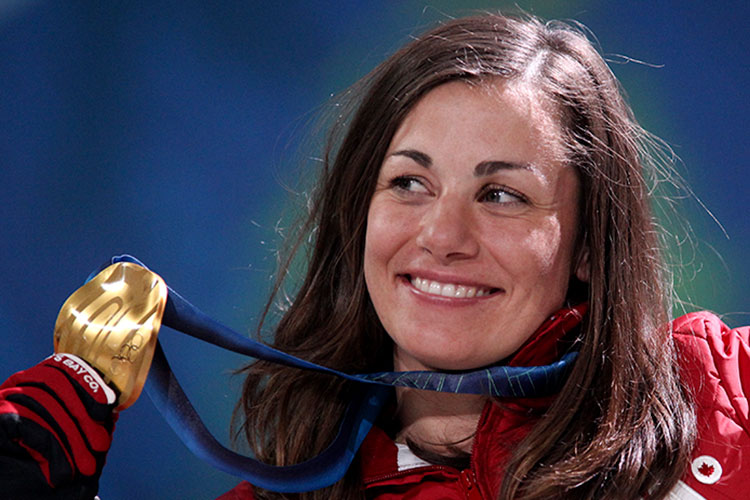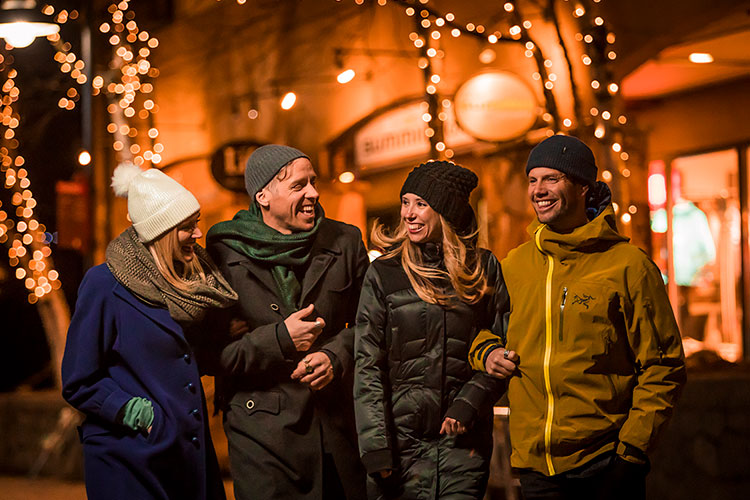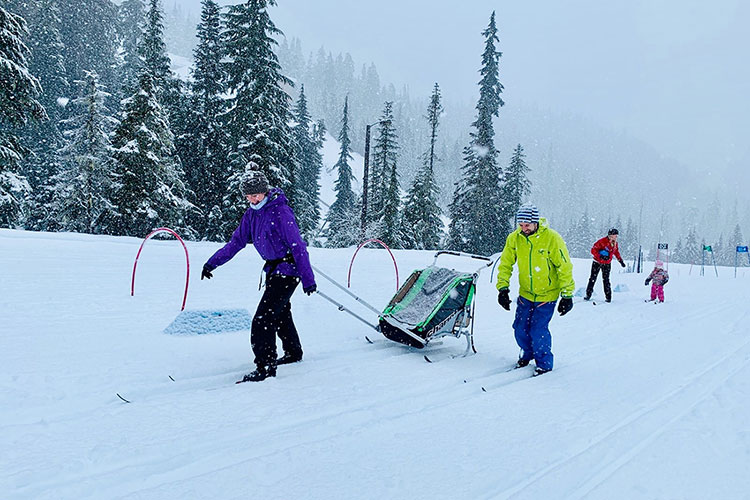
This month marks the ten-year anniversary of the 2010 Olympic and Paralympic Winter Games in Whistler and Vancouver. For many, it’s hard to believe a full decade has passed since our communities hosted the world, showcased the beauty of the Coast Mountains and cheered our voices raw for our local Olympians.
Certainly we have reminders: Whistler Olympic Plaza is a true community gathering spot (and has an awesome winter skating rink!) while Whistler Olympic Park and the Sliding Centre continue the legacy of the games by giving our next generation of athletes the opportunity to shine, and also provide recreation for locals and guests alike.
But mostly we have the memories — the non-stop party of Whistler Village, the excitement of watching the world’s best athletes perform, the uncrowded runs and sunny skies on Whistler and Blackcomb Mountains.
For many Whistler locals, some of our strongest memories are watching the Canadian athletes compete against the world’s best right here in our own backyard.
That shared love of sport is the real magic of the games. So, to commemorate the ten-year anniversary, The Insider has tracked down some Sea to Sky local Olympians who stepped up to compete for their country, on their home turf, in the 2010 Olympic and Paralympic Winter Games.
Maelle Ricker: Snowboard Cross
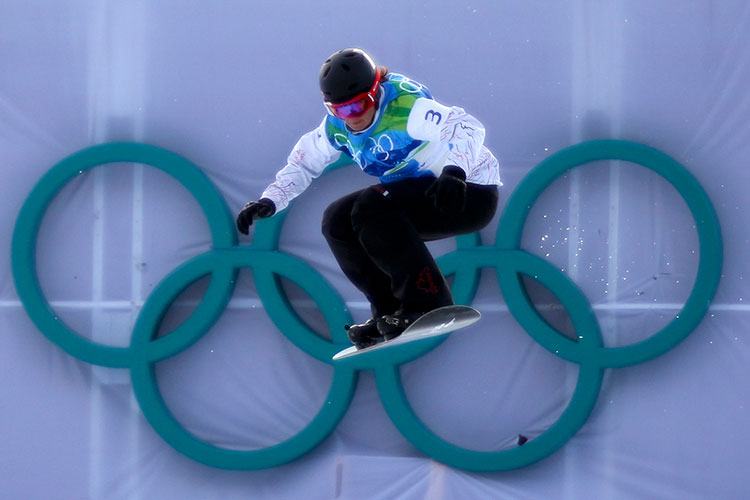
Local snowboarder Maelle Ricker had already competed at two Olympics and was a two-time X-Games champion heading into 2010. Her victory in Snowboard Cross made her the first woman ever to win Olympic gold on home soil.
“It was a whirlwind,” Maelle says. “Exciting to think back on, but at the time it was kind of a blur. When I’m competing, I’m on autopilot, so I made a point of treating the Games like any other contest.”
This meant staying at the Olympic Village in Vancouver rather than at home, and making sure she didn’t have her car or cell phone to distract her.
“The morning of the [snowboard cross] race I was in my groove and then I fell at a really weird spot in my first time trial and all of a sudden the nerves, pressure and the reality check hit. My second qualifying run was the most nervous I’ve ever been on my snowboard, but it was a one-in-a-billion chance. I grew up in West Vancouver and the mountain we were racing on was literally up the road from my house.”
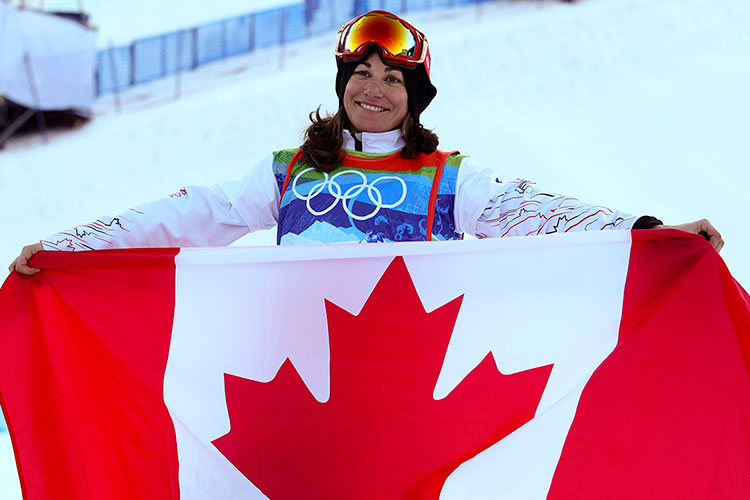
Now retired from competition, Maelle coaches for the Canadian National Team and says the “Whistler style” of riding is helpful to boarder cross athletes.
“There is such a wide variety of skills needed to be efficient on a boarder cross course. I think having these big mountains and all these elements of freeriding and racing here at our fingertips is a huge benefit.”
These days, Maelle is the proud mother of a two-year old daughter, who went up the mountain for the first time this season.
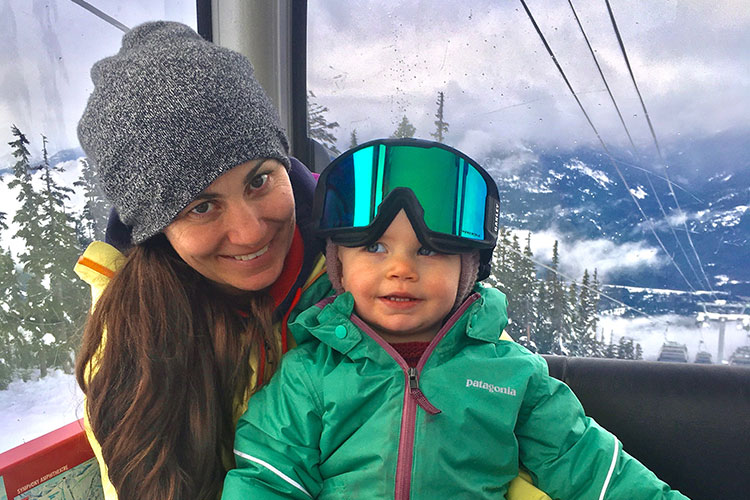
Tyler Mosher: Cross-Country Skiing
Whistler snowboarder Tyler Mosher suffered a spinal cord injury in 2000 and spent the seven years prior to 2010 working towards his goal of competing as a cross-country ski athlete at the Paralympic Games.
“Once 2010 hit I was so focused on my goals that I didn’t realize what a huge event it was and what it meant to compete at home. I went to the opening ceremonies and to the Olympic Village, but you don’t want to get sick so I actually left town for two weeks before my events and went somewhere else to train.”
Skiing classic style, Tyler competed in the Para Nordic Relay, the 10 KM and the Sprint.
“Originally, I took up cross-country to help me relearn to walk and get stronger and really, even in 2010 I was there with a double agenda — to compete, but also to promote the inclusion of snowboarding in the Paralympics. A snowboarder kid who loses a leg should not have to put on tights and become a ski racer, he’s a snowboarder! So, I was lobbying people. Whistler is such a snowboard mecca and the adaptive program is so strong here, we were able to be a leader and in 2012 snowboarding was granted inclusion in the 2014 games.”
Mosher competed in snowboarding at those games. A successful businessman, he’s also the current Treasurer for the Board of Directors of the Canadian Paralympic Committee.
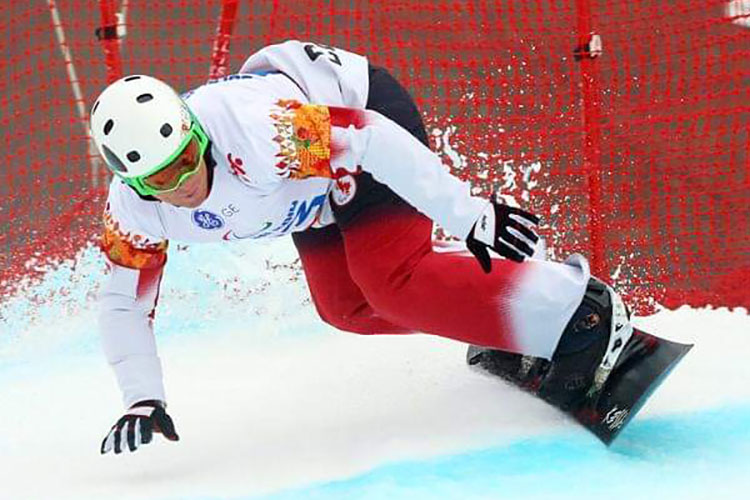
“Pushing for snowboarding was an opportunity for me to give back to the Paralympic community that gave me so much when I needed it,” he says. “These days I mostly snowboard,” he adds. “But the biggest thing I have to say to anyone is make sure you are having fun and enjoy what you do. If you want to compete in the Olympics or the Paralympics, I think you just need to stay focused and have fun, and don’t choose hockey.”
Justin Lamoureux: Snowboard Halfpipe
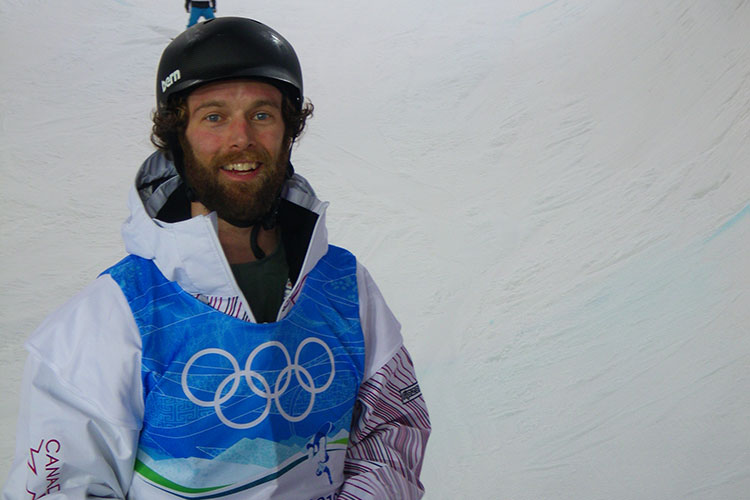
Hockey played a big role in snowboarder Justin Lamoureux’s 2010 experience, although placing seventh in Snowboard Halfpipe was admittedly also a highlight.
“Competing under the lights in front of a hometown crowd, it was insane to be able to do that,” Justin says. “And watching Maelle and Jasey-Jay [Anderson] win was so awesome. The whole experience was rad to watch and be a part of.”
While Justin did come up to Whistler for a few events, and to ride Whistler Blackcomb with his brothers, he says he spent much of the Games hanging out at the Athlete’s Village in Vancouver.
“Just meeting people — every athlete at the Olympics is super amazing and it was really easy to bond with people. I grew up playing hockey so to watch some games live and get to know some of the Team Canada players was amazing. Sydney Crosby and Shea Weber came up and told me they watched my run and said I’m crazy. My roommate, Brad Martin, and I were playing NHL 2010 on the PlayStation and in walks Marc-Andre Fleury, Team Canada’s goalie. So, Brad puts him in net in the video game for the shoot out and after a bunch of rounds I score and win. Brad throws the controller, turns to Fleury and gives him a hard time for ‘letting it in.’ Fleury was cool though — he said, ‘I woulda saved it in real life.’ Those kind of funny random things can’t happen anywhere else. That’s part of the magic.”
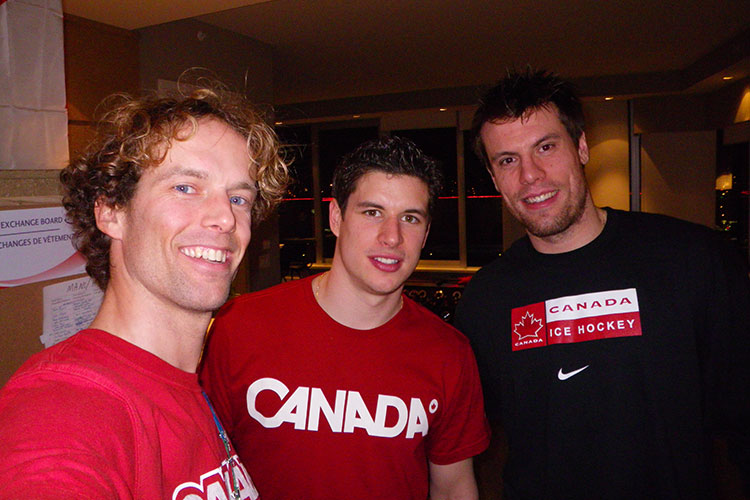
Now retired from competition, Justin is still a sponsored snowboarder, a certified ACMG (Association of Canadian Mountain Guides) guide, and owner / operator / chief engineer at Spline Snowboards; a boutique snowboard and splitboard company based out of Squamish.
Kristi Richards: Freestyle Skier – Moguls
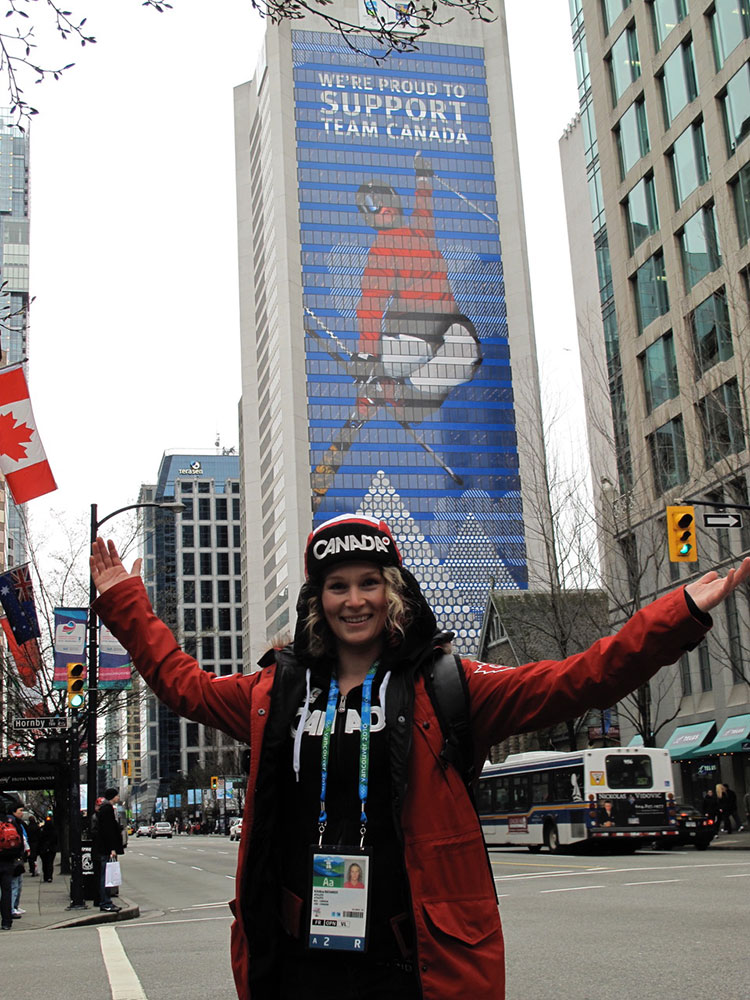
Freestyle Skier Kristi Richards recalls the moment before she dropped into to her run in the finals for Mogul Skiing.
“Flying into Vancouver from our final training camp and seeing a HUGE building wrap of me on the RBC building was pretty surreal,” Kristi says. “But standing at the top of the course looking out into a sea of fanatical Canadians, it’s such a crazy, empowering energy. I felt so charged, so aware and focused. It’s something that really can only be experienced when the games are in your home. So, that was definitely a favourite memory.”
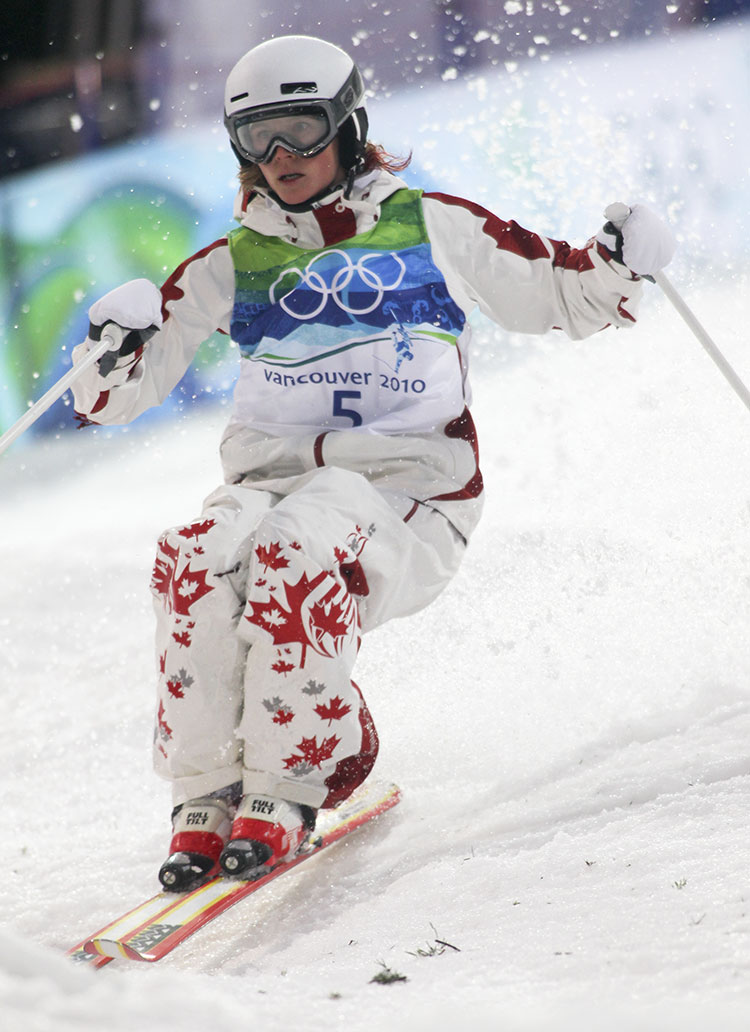
After finishing fourth in the qualifying round, Kristi lost a ski and crashed during her final run. Showing incredible poise, she retrieved her ski, clicked back in and finished her run — stomping her second jump (a back flip with a full rotation) to the roaring cheers of her Canadian fans at the bottom.
Since Women’s Moguls occurred early in the games (Alberta’s Jennifer Heil took silver in the event, Canada’s first medal), Kristi came back up to Whistler to celebrate and enjoy the show.
“Coming home to my friends and family and being a ‘tourist’ for the rest of the Games was awesome. We had access to some great event passes, so I tried to see as many sports and venues as possible. I’m sure I lost my voice at the Women’s Downhill. I’ll find it someday…”
After her competitive career ended, Kristi followed her passion for health and food, and started a holistic food company. These days she also acts as Head Coach for the Ireland National Freestyle Team and runs a high-performance coaching academy.
Mercedes Nicoll: Snowboard Halfpipe
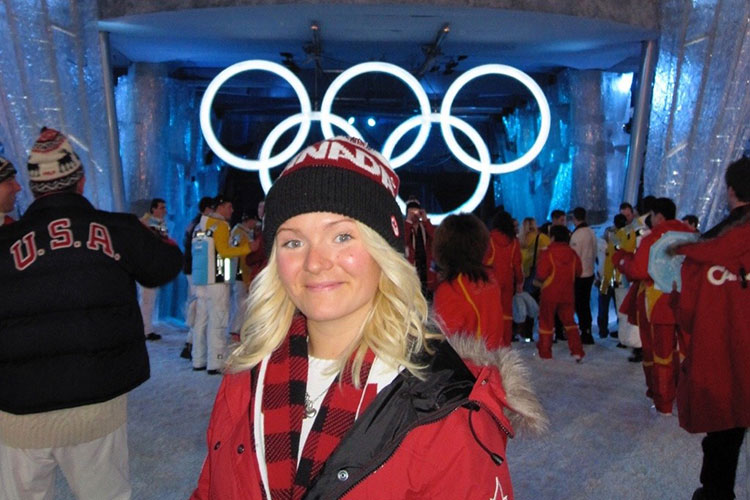
Whistler snowboarder Mercedes Nicoll first represented Canada in a World Cup competition in 1999 at age 16. She competed in four Olympics during her professional career; the 2010 Games were her second.
Coming in as an underdog in Women’s Snowboard Halfpipe, Mercedes says that she didn’t feel too much pressure, but was nervous about making the finals. Which she did, leading to her favourite memory of the games.
“I remember being at the top and [number 1 ranked competitor] Tora Bright came up and said, ‘I love it when you drop in, the crowd goes wild.’ And I said, ‘They do that for everyone.’ And Torah said, ‘No, only for you.’ So, I listened a bit harder and it was unbelievable, it felt like all of Canada was there in my backyard cheering.”
Mercedes landed 4th in the finals, but was rushed to the hospital the next day.
“I had pancreatitis the day of the contest, but I rode anyway. After the hospital, I made it up to Whistler for one day and then back to Vancouver to walk in the closing ceremonies. I wanted to be with the team for this one.”
Mercedes went on to represent Canada in two more Winter Games. Currently the Chair of the Athletes Council and a board member of Snowboard Canada, she recently returned from the 2020 Youth Olympics in Switzerland where she mentored the next generation of athletes as a team mission staff member.
“It’s so less stressful being an ‘old timer’,” Mercedes says. “It was awesome!”
When it comes to Olympic Sports however, Ski Cross seems to be the most suited to Whistler athletes. Born-and-raised Whistler skiers Davey Barr, Julia Murray and Ashleigh McIvor all competed in Ski Cross in 2010. Some attribute Whistler’s success in Ski and Snowboard Cross (Canadian women have won gold in every Olympic Ski Cross to date) to the style and variety of riding in Whistler — the prevailing attitude of pushing the limits probably doesn’t hurt either.
Julia Murray: Ski Cross
View this post on Instagram
Julia Murray blew the anterior cruciate ligament (ACL) in her knee one month prior to the 2010 Games.
“I had to get surgery two weeks prior to the games just so I could bend my leg,” Julia remembers. “I was on crutches and it was two weeks of physio / gym / icing along with two drainages and cortisone shots into the knee. But, I made it to the start gate! That feeling, the crowd cheering so loud, it’s such an incredible feeling…”
Julia raced despite her injury, advancing to the second round and placing 12th overall. The only time she was in Whistler during the Games was prior to the official opening. Julia was selected to carry the Olympic torch and pass it to Canadian ski legend (and teammate of her late father, Crazy Canuck Dave Murray), Steve Podborski.
“Because of my knee I carried the torch riding on an electric snowmobile instead of skis as planned, but handing it off to Steve Pod…that was incredible.”
Julia retired shortly after 2010 and has remained in Whistler, marrying teammate Davey Barr and starting a career as a writer / nutritionist / celebrity in the blossoming world of plant-based cuisine. She is currently organizing Whistler’s first ever Vegan Festival, set for summer 2020.
Ashleigh McIvor: Ski Cross
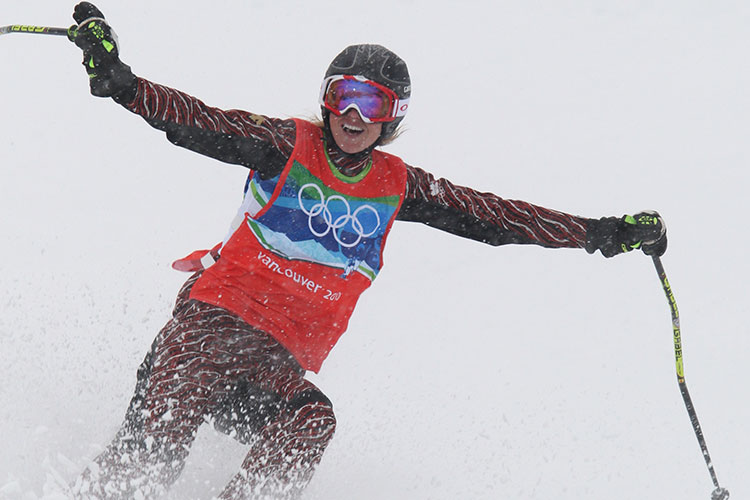
Ski Cross athlete Ashleigh McIvor won gold in that same 2010 Olympic Ski Cross.
“It’s still so hard to put into words,” she says of the entire Games. “It still feels like it was all a dream. Or magic — out of this world energy, positive vibes, everyone running on a higher frequency so that the power of the collective was much stronger than the sum of its parts. I somehow managed to channel that into the performance of a lifetime.”
Ashleigh remembers staring down the expectations, the pressure and the fear of failure, injury, or even just disappointing the local fans.
“I remember the moments when it would begin to feel overwhelming and I was faced with a choice: continue down that rabbit hole or rise above, be in the moment and focus on the task at hand. It was really about being strategic about which thoughts I wanted to dwell on.”
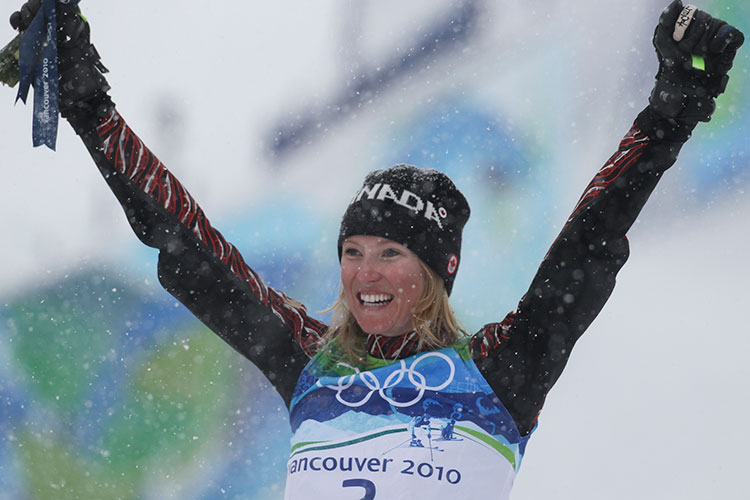
Trying to treat the race the same as any other event and reminding herself that she could “only control the control-ables,” Ashleigh won her first heat and the quarter finals.
“And I CELEBRATED those victories, so by the time I rolled into the semi and the finals I was so fired up! And the rest is history. To attend an Olympics on home snow is a surreal dream come true, but to win a gold medal there… life quickly shifts gears. So many people had put so much into supporting me and I had a responsibility to them. The media creates expectations or a reputation and then the public adopts that. I took the role very seriously, but at the same time, my sense of identity almost got wrapped up in the role of ‘Olympic Gold Medallist’ for a while. Luckily I had great mentors like [Canadian ski icon] Nancy Greene and my coach Willy Raine [Nancy’s son].”
After much deliberation (and a second blown knee), Ashleigh retired from competition in 2012. These days she spends most of her time with her four-year-old son and balances a career skiing / biking / modeling / speaking / supporting brands and broadcasting with the Canadian Broadcast Corporation (CBC).
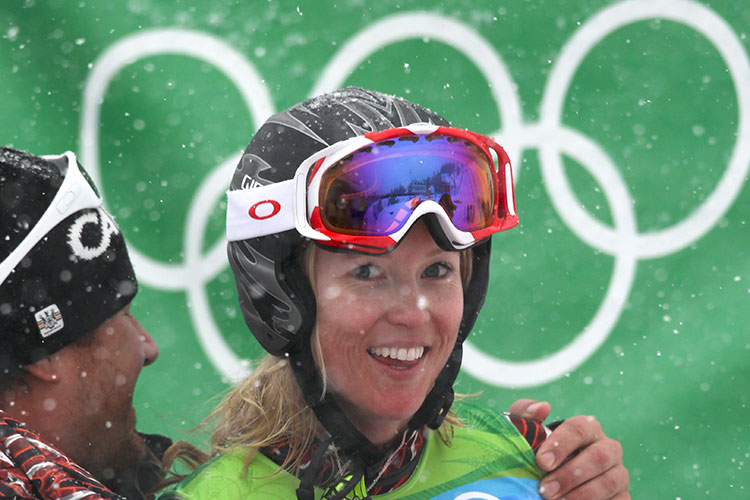
“Accomplishing more than you ever imagined you would in your chosen field is a very special thing,” she says. “I’ve really endeavoured to appreciate what I have and what I have accomplished, to allow myself to enjoy it all, and to focus on what’s truly important. I think that is the spirit of the Whistler life. And Whistler life just feels sooooo good.”
These local Olympians help us to look back, but you can also connect with the Games in Whistler whenever you visit – the spirit lives on here all year-round.
